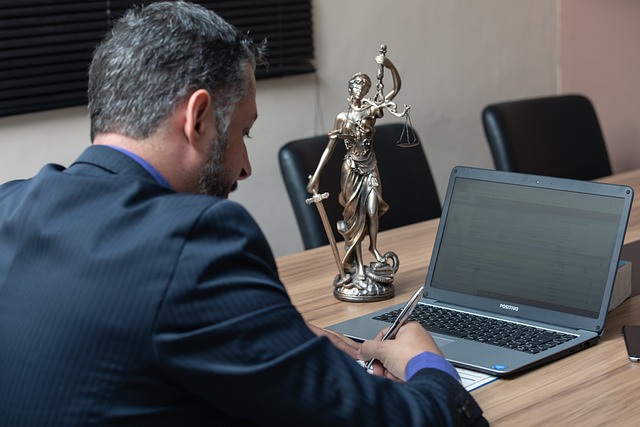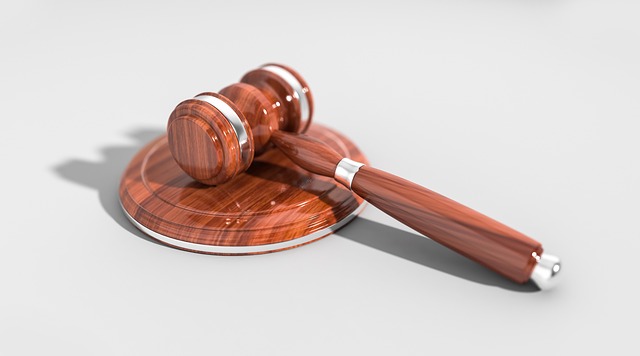C-Level investigations uncover high-level misconduct in companies, focusing on executives and their actions to expose fraud, breach of duty, or legal violations. Gathering evidence, interviewing witnesses, and analyzing financial records, similar to understanding "how to file a personal injury claim," is crucial for these inquiries. These insights promote accountability, protect stakeholders, and ensure transparency in corporate settings. Early identification of red flags through proactive methods like personal injury claims facilitates swift action, benefiting organizations nationwide. Skilled investigators use advanced techniques to uncover facts, ensuring robust cases with favorable outcomes. Precise record-keeping during investigations is vital for legal considerations, including "how to file a personal injury claim." Strategic communication and negotiation are essential in complex cases, with experienced legal counsel specializing in general criminal defense offering tailored guidance.
“In the realm of corporate governance, C-Level investigations play a pivotal role in maintaining integrity. This comprehensive guide delves into the intricacies of such inquiries, offering insights on understanding their scope, recognizing pivotal red flags, and adopting robust evidence gathering practices.
From legal considerations to negotiation strategies, we explore best practices for resolving claims. Learn how to navigate these complex scenarios, ensuring fairness while adhering to legal guidelines, especially in relation to personal injury claims and the steps to file them effectively.”
- Understanding C-Level Investigations: What They Entail
- When to Launch an Investigation: Identifying Red Flags
- Gathering Evidence: A Comprehensive Approach
- Legal Considerations and Documentation Procedures
- Resolving Claims: Strategies for Effective Negotiation
Understanding C-Level Investigations: What They Entail

C-Level investigations refer to high-level inquiries into alleged misconduct or illegal activities within a company, typically involving top-tier executives and decision-makers. These probes are comprehensive processes designed to uncover truths in complex business environments, where white-collar and economic crimes can have significant impacts on stakeholders, including employees and investors. Unlike typical personal injury claims, which focus on compensating individuals for physical or emotional harm, C-level investigations aim to hold accountable those who engage in fraudulent activities, breach fiduciary responsibilities, or violate legal frameworks, ensuring justice for respective businesses and their communities.
Understanding the mechanics of how to file a personal injury claim is essential during these investigations. While each case is unique, they often involve gathering evidence, interviewing witnesses, and analyzing financial records to determine liability and assess damages. The insights gained from such claims can provide crucial context for understanding the scope of potential misconduct, helping legal teams navigate intricate business landscapes and uncover the truth behind allegations, ultimately ensuring accountability and promoting ethical practices in corporate environments.
When to Launch an Investigation: Identifying Red Flags

When considering launching a C-Level investigation, it’s crucial to know when red flags warrant further scrutiny. These signs can manifest in various forms across the country and within respective businesses. Unethical practices, financial discrepancies, or allegations of misconduct are common triggers for such inquiries, especially in high-stakes environments.
Identifying these issues early is essential, as it allows for swift action to protect stakeholders and maintain business integrity. Whether it’s a general criminal defense scenario or an internal review, knowing how to file a personal injury claim—in this context, referring to the formal process of initiating an investigation—is vital. This proactive approach ensures that any potential harm is addressed promptly, fostering a culture of transparency and accountability across organizations.
Gathering Evidence: A Comprehensive Approach

In high-stakes cases, especially those involving How to File a Personal Injury Claim, gathering evidence is a meticulous and comprehensive process. It requires a deep understanding of both the legal framework and the unique circumstances of each case. Skilled investigators employ advanced techniques to uncover crucial facts, including interviewing witnesses, reviewing medical records, and analyzing digital evidence. This holistic approach ensures that every detail is considered, enabling attorneys to build robust cases that lead to achieving extraordinary results for corporate and individual clients alike.
The process demands a strategic mindset and the ability to navigate complex scenarios. Investigators must remain objective and methodical, employing both traditional and innovative methods to gather irrefutable evidence. This dedication to thoroughness is instrumental in securing favorable outcomes, whether it’s settling out of court or prevailing in trials, ultimately protecting the interests of clients across diverse sectors.
Legal Considerations and Documentation Procedures

When launching C-Level investigations, understanding legal considerations is paramount. The process begins with carefully documenting evidence, which is crucial for any subsequent How to File a Personal Injury Claim. It’s essential to gather and preserve all relevant information, including communications, financial records, and witness statements, ensuring they align with legal standards. These procedures are vital to protect the rights of both corporate and individual clients involved, especially when navigating complex cases that may lead to jury trials.
The documentation process involves meticulous record-keeping, where every step is documented to maintain transparency and integrity. This includes creating a detailed timeline of events, taking careful notes during interviews, and storing all data securely. Such meticulousness is not only beneficial for legal proceedings but also helps in fostering trust among philanthropic and political communities, ensuring their concerns are addressed effectively throughout the investigation.
Resolving Claims: Strategies for Effective Negotiation

When facing a personal injury claim, effective negotiation strategies are key to resolving the issue efficiently. The first step in this process is understanding your rights and the legal framework surrounding how to file a personal injury claim. This involves gathering evidence, such as medical records and witness statements, to strengthen your case. It’s crucial to communicate openly with the other party and their representatives, aiming for a settlement that adequately compensates you for your injuries and associated expenses.
A strategic approach to negotiation can help avoid lengthy court battles, which are often costly and time-consuming. This is especially important when dealing with complex cases, such as white collar and economic crimes, where the stakes might be higher. Engaging experienced legal counsel who specializes in general criminal defense can provide invaluable guidance tailored to your respective business’s needs. They can help navigate the complexities, ensuring a favorable outcome through skilled negotiation or robust representation in court, if necessary.
C-level investigations are crucial steps in addressing potential misconduct within an organization. By understanding the process, recognizing red flags, and employing comprehensive evidence gathering methods, companies can effectively navigate legal considerations. This structured approach, including proper documentation and negotiation strategies, ensures fairness while resolving claims, ultimately fostering a safer and more transparent work environment. For individuals seeking to file a personal injury claim, these investigations provide clarity and justice, ensuring that all parties are held accountable under the law.






